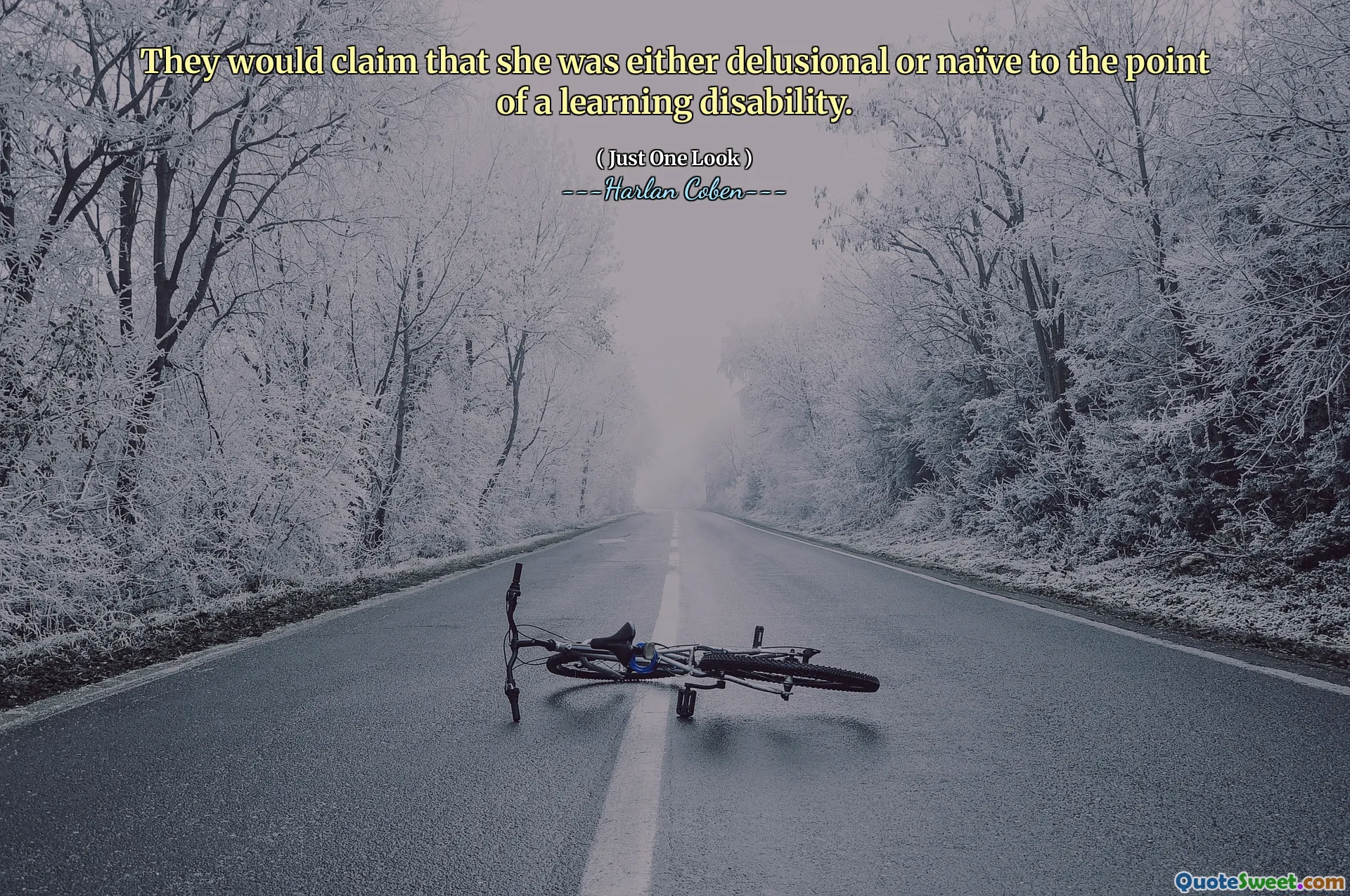
They would claim that she was either delusional or naïve to the point of a learning disability.
[Markdown format] The quote highlights the often harsh judgments society places on individuals who may see or understand the world differently. When someone is labeled as delusional or naïve, it reflects a dismissive attitude toward their perspective and intellect. This kind of labeling can serve to invalidate their experiences and diminish their worth, creating barriers to understanding and empathy.
In a broader context, this quote prompts us to question how quick we are to deride others' perceptions, especially those who challenge prevailing beliefs or demonstrate vulnerability. The notion of being naive to the point of a learning disability complicates perceptions of intelligence, suggesting that innocence or inexperience is viewed as a flaw. Society sometimes confuses innocence with ignorance, overlooking the value that fresh or unspoiled perspectives can bring.
Furthermore, the dichotomy of being labeled as delusional or naïve underscores a tendency to polarize individuals based on limited understanding. It also raises critical questions about the labels we use and their implications. Are these labels justified, or are they ways to put others down to maintain certain power dynamics?
From a storytelling perspective, as seen in Harlan Coben's '(Just One Look)', characters often face scrutiny and judgment based on superficial assessments. These judgments can serve as barriers the characters must overcome, emphasizing themes of perception versus reality, and challenging us to look deeper.
Ultimately, this quote reminds us to consider how our judgments reflect our biases and whether they allow us to appreciate diverse viewpoints or perpetuate misunderstandings and stereotypes.






